Macron wants Europe to walk a very fine line between relying on NATO and heading to its own course. But the new geopolitical situation has placed Europe at a crossroads.
Macron wants Europe to walk a very fine line between relying on NATO and heading to its own course. But the new geopolitical situation has placed Europe at a crossroads.
After Donald Trump’s election, European leaders gathered in Budapest on November 7 for the 5th Summit of the European Political Community, established two years ago by Emmanuel Macron. Throughout the summit, the shadow of Trump loomed. During his campaign, Trump declared he would end the war in Ukraine and raise tariffs on European goods. His election has deepened concerns, particularly in economically struggling France and Germany.
The crisis is not just economic, but also political. Macron’s election defeats and the fragility of his minority government, which faces the constant risk of a no-confidence vote, have weakened his hand. In Germany, as we have pointed out multiple times, the three-party coalition of the Social Democrats (SPD), the Greens, and the Free Democratic Party (FDP) has collapsed. Chancellor Scholz, rejecting his demand for early elections, removed FDP leader and Finance Minister Christian Lindner from office. Scholz announced that he would seek a vote of no confidence in the Federal Parliament on January 15, 2025, and there will be early elections by March at the latest.
Orbán in comfort
Over 40 leaders attended the summit hosted by Viktor Orbán. Scholz, however, did not attend due to the collapse of his coalition. The Budapest Times wrote that Hungary had set a record for hosting “the largest diplomatic event in Hungarian history”.
Orbán, relieved by the Trump’s second term, was confident at the summit. Orbán, known as a Trump’s personal friend, is already being viewed as a bridge between the EU and the US. Italian Prime Minister Giorgia Meloni is another leader views as close to Trump.
The French TV5 Monde remarked that “With Donald Trump’s victory, Hungarian Prime Minister Viktor Orbán is in a strong position after months of struggles and ‘provocations’” emphasizing Orbán’s moves undertaking peace mission with Moscow over Ukraine without consulting anyone and visiting Georgia to declare the election “free and democratic”.
Neither naive transatlanticism nor narrow nationalism
It seems that it is time to shuffle the deck now in Europe. At this summit, European leaders sought to showcase unity against the US. Particularly, Emmanuel Macron, who has been vying for European leadership from the start, tried to stand out. Following Trump’s election, Macron reached out to Scholz, expressing his desire to strengthen the Franco-German partnership regarding the new American president.
The French newspaper L’Opinion analyzes that the Franco-German duo, Europe’s driving force, is currently “in a weak position”. It notes that Macron, weakened by his parliamentary election losses, initiated a dialogue with Scholz right after Trump’s victor to emphasize the need for a “more united, stronger, and more sovereign Europe” in this new context.
In his speech at the summit, Macron emphasized that Europe’s role is not to “comment on Trump’s election or its consequences”, instead “defending European interests”: “The real question is: are we ready to defend our interests as Europeans? That is the only question. Neither naive transatlanticism, questioning our alliances, nor narrow nationalism that prevents us from facing challenges with the US and China should define us”. Macron called for action to safeguard Europe’s sovereignty and security on its own, saying “We must not delegate forever our security to the US”.
Europe at the crossroads
Despite that, Macron continued the Biden administration’s confrontational tone against Russia. Macron said that it is in the EU’s interest that Russia does not win the war; otherwise, the EU would face an imperial power which wants to change borders in the continent. Macron assigns a crucial role here to NATO.
Macron wants Europe to walk a very fine line between relying on NATO and heading to its own course. But the new geopolitical situation has placed Europe at a crossroads. The continent can only overcome its political and economic crises by moving away from NATO. The era of neoliberal global barons has ended, and now all paths lead to Asia and a new global order.








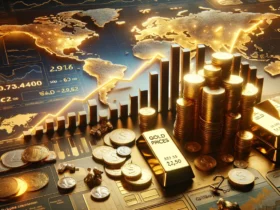
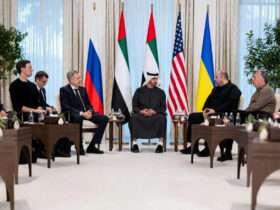
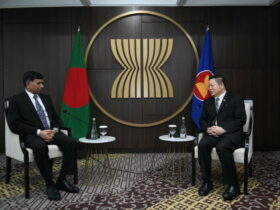
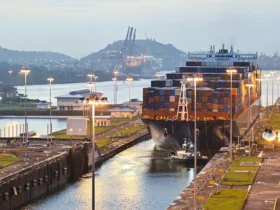
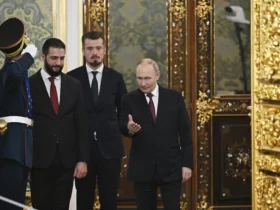


Leave a Reply